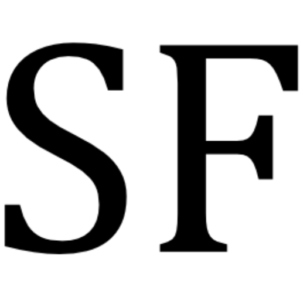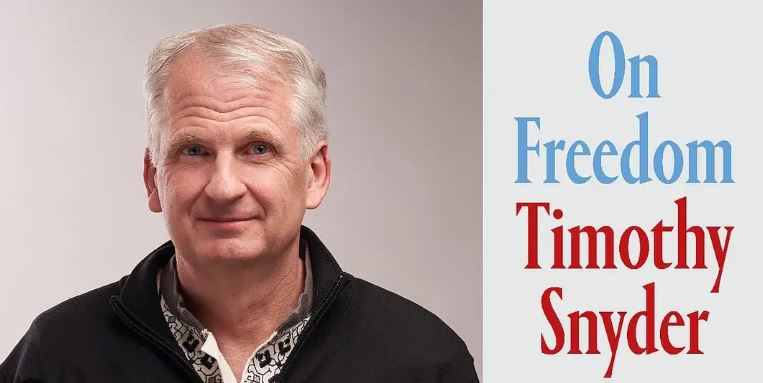Musings on Timothy Snyder’s book: On Freedom
In this, my first foray into substack publishing I share my thoughts about Timothy Snyder’s excellent book, On Freedom:
One of the concepts that I talk about in my book, Managing in Complexity: How Our Fear of Uncertainty Can Hurt Us and What to Do About It, is value slogans. The Chapter in which I talk about habitus, or the more popular term, culture, defines these as the following:
This brings us to value slogans. These are values that are adopted by organizations as branding statements or motivational slogans, in other words they are values which are expressly adopted and made public. Again, they can be highly symbolic and provide an idealised view of the future which evokes the sense of belonging to something greater than oneself and becomes an important part of the identity of members of the group. There are no qualifiers as to the constraints or barriers that might lie in the path to this wonderful future. Thus, statements like “We will be number 1” or “We will be the leader in our market” or “We will make our country great again” are idealized promises about the bright future awaiting us as a group if we sign on to these values. Often, value slogans are used as shorthand to express a concept or value or to convey a brand. For this reason, they often feature prominently in corporate and planning documents.
While value slogans can be tremendously helpful in helping us to work together, when we are unable to examine and understand them, they can become part of the empty language often used in organizations and a replacement for thinking and understanding. (pp. 116-117)
What is true for organisations is also valid for any societal grouping or movement. What we are seeing in the United States is a focus by the MAGA and Republican crowd on a single value slogan, that of freedom. As I point out in my book, one of the dangers of these slogans is that they are often ill defined and can replace critical thinking as to what good is being promoted. For that reason, historian Timothy Snyder’s 2024 book On Freedom is a must read for those seeking to understand what is going on in America today.
Snyder is a prolific writer and is perhaps best known for his work “On Tyranny,” already making its mark on our public discourse. He draws heavily upon his work as an historian but also that of contemporary thinkers, political dissidents and philosophers together with his coming-of-age experiences during the period of American exceptionalism.
He points out that the MAGA / Republican group uses the term, freedom, in the negative sense, e.g., that the absence of this or that will make us free. In other words, it is ‘freedom from’ (freedom from taxes, government regulations, and in general the removal of barriers to freedom). Freedom in this sense is often used to suggest that anything that impinges upon the individual or group’s freedom of action should not be allowed. This is problematic for several reasons.
First, he points out that it is people and not ‘things’ that are or are not free. He suggests that freedom cannot be ‘given’ nor can it be possessed by things (e.g. markets, corporations etc.). And yet, fundamental to the ‘freedom from’ group, is the demand that taxes and regulations be reduced on organisations and that the market be untrammelled by restraints and thus be free!
Second, he makes the point that if all we do is eliminate barriers, we will still not necessarily be free. Instead, if we want to be free, we need to “affirm and not just deny. Sometimes we will have to destroy, but more often we still need to create” (p. xiii). And in doing so, values such as virtue and security become important.
Lastly, and perhaps of greatest importance, if freedom in the negative sense means freedom to do whatever I want regardless of the impact upon others, this divorces rights from their corresponding responsibilities. Practically life is not and cannot be like that. We all live in society and our actions and inactions inevitably have an impact upon others, large or small. We are inextricably intertwined in that the individual does not exist without society and vice versa. Our actions necessarily enable and constrain each other. A world in which we are all free to do whatever we want and have no responsibility to think about the impact of our actions upon others is anarchical.
Thus, it is not possible to contemplate a world in which everyone is free in the negative sense. Because we are all so interconnected, sooner or later, individual or group A’s freedom will impinge on individual or group B’s. That brings us to a world of continued competition or in the extreme warfare between individuals or groups. Over time, it leads to a world in which some individuals’ and groups’ freedoms matter more than others as they can impose their will upon them. And thus, as he and others have repeatedly pointed out, negative freedom, while it may pay a visit to anarchy on the way, is ultimately the harbinger of totalitarianism.
Instead, Snyder proposes that we need to focus on the value of positive freedom which is the ‘freedom to’ thrive in futures we choose. It is knowing what is of value to us and bringing it into existence. It depends on what we can do which in turn necessarily depends on others”, thus reinstating the connection between rights and responsibilities.
He further explores the concept of freedom by examining five forms or processes of positive freedom, which he suggests are: sovereignty – the learned capacity to choose; unpredictability – the power to adapt circumstances to personal purposes; mobility – the capacity to move through space and time in the pursuit of values; factuality – the way of understanding what is going on that allows us to change it; and solidarity – the recognition that freedom is for everyone and is everyone’s responsibility.
In these times of slavish adherence to value slogans which are widely used but rarely defined, Timothy Snyder’s work is refreshing and inspiring and invites us to examine our practices and attitudes to consider how we might avert the catastrophic future that threatens. Rather than entrusting our freedom to impersonal forces and actors such as social media, corporate media, fascist governments, wealthy corporations and oligarchs, he concludes by proposing new ways of thinking about governance that draws upon values and concerns of both the left and the right. A must read for those of curiosity who are struggling to come to terms with the recent turn to autocracy.



